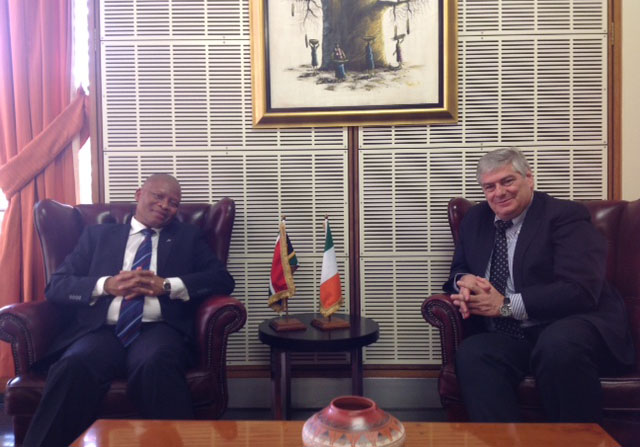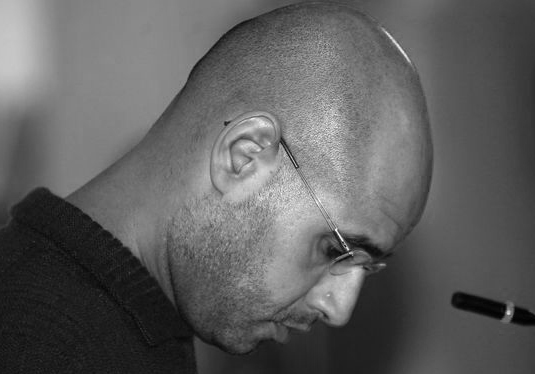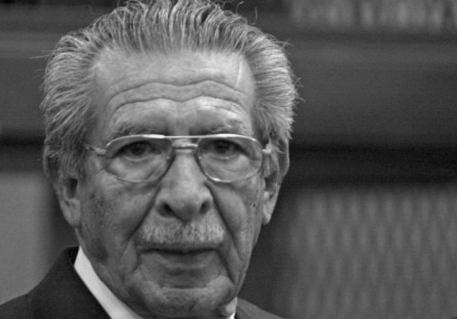
Jul 29, 2015 | News
They held bilateral talks at the Constitutional Hill in Johannesburg, discussing matters of mutual interest including possible collaboration in the building of strong, independent, impartial and accountable judicial institutions on the African continent.
They also agreed in principle on the importance of establishing a platform of systematic and sustained dialogue by judicial leaders in Africa on challenges that emerge from time to time that pose threats to judicial independence.
A few country specific situations on threats to judicial independence were discussed as well.
The ICJ Secretary General is in Southern Africa where he has met several judicial leaders including Chief Justice Godfrey Chidyausiku of Zimbabwe, Justice Rita Makarau the Secretary of the Judicial Service Commission in Zimbabwe and Justice Azhar Cachalia of the Supreme Court of Appeal of South Africa who is also the Chair of the Executive Committee of the ICJ.
He will be in Swaziland on Thursday and Friday before winding up his visit to the region on the 2nd August 2015.

Jul 28, 2015 | News
The ICJ today expressed its serious concerns about the trial, conviction and sentencing to death of Saif al Islam Gadhafi, Abdallah al Senussi, as well as seven officials of the Gadhafi regime by the Tripoli Criminal Court.
The ICJ is deeply concerned that the trial of the officials of the Gadhafi regime failed to scrupulously respect the guarantees of fair trial as required by Article 14 of the International Covenant on Civil and Political Rights, to which Libya is a state party.
The imposition of the death penalty following such an unfair trial violates the right to life.
The ICJ opposes the death penalty in all circumstances as a violation of the right to life and the right not to be subjected to cruel, inhuman or degrading punishment.
“Libyan authorities must comply with their obligations under international law, refrain from implementing the death sentences against Saif al Islam and 8 former Libyan officials, and ensure that all defendants are retried before an independent and impartial tribunal and in full compliance with international fair trial standards,” said Said Benarbia, Director of the MENA programme at the ICJ.
“The trial is a lost opportunity to make a break from decades of unfair trials in Libya. It is also a missed opportunity to establish the truth about the legacy of alleged gross human rights violations committed during the 40-year reign of Moammar Gadhafi, including summary executions, enforced disappearances, torture and other ill-treatment, and arbitrary detention,” Benarbia added.
Fair trial violations included severe limitations on the defendants’ rights to access a lawyer, to adequate time and facilities to prepare a defence, and to be represented and communicate with a lawyer of their own choosing, the ICJ says.
23 other defendants were sentenced to prison terms ranging from life imprisonment to 5 years.
The charges against the officials included: “murdering and bombarding civilians during the 2011 revolution,” “inciting, participating and assisting in the murder of Libyans,” “recruiting mercenaries and establishing brigades and then providing them with weapons, uniforms and money to fight the protesters.”
Some defendants, including Saif al Islam Gadhafi, who continues to be held in militia custody in Zintan, were not present during the trial, though were connected by video link at times.
The ICJ is also concerned that the defendants’ rights to appeal are limited in numerous ways.
Convictions by the Tripoli Criminal Court will be reviewed before the cassation chamber of the Supreme Court.
The chamber only examines the proper application of the law by the lower courts and does not review the merits of the case.
In accordance with Libya’s obligations under international law, including the ICCPR, the defendants have the right to have their convictions and sentences reviewed by an independent higher tribunal.
Such review must concern both the legal and material aspects of the defendants’ convictions and sentences.
The ICJ is concerned that political and security instability in Libya continues to undermine the ability of the judiciary to function and administer justice independently and impartially.
In reviewing the situation in the context of the Saif al Islam Gadhafi case, the International Criminal Court (ICC), expressed concern about the inability of the judicial and governmental authorities to obtain testimony or to provide witness protection.
It found that Libya was unable to conduct a fair prosecution and trial of Gadhafi.
The ICC issued a warrant for his arrest to answer allegation of crimes against humanity.
The ICJ calls on the Libyan authorities to annul the unfair proceedings; to fully cooperate with, and surrender Saif al Islam Gadhafi to the ICC; and to ensure the fair re-trial of the other accused.
Contact:
Doireann Ansbro, Associate Legal Adviser, ICJ Middle East and North Africa Programme, t: +216 71 841 701, e: doireann.ansbro(a)icj.org
Libya-Saif Gadhafi sentence-News-Press releases-2015-ARA (full text of press releases in Arabic, PDF)
Photo: Ahmed Jadallah / Reuters

Jul 22, 2015 | News
El genocidio perpetrado contra población Ixil de Guatemala será debatido en el segundo juicio seguido en contra del ex Presidente de facto Efraín Ríos Montt y el ex Director de inteligencia José Mauricio Rodríguez Sánchez.
El juicio está por reiniciarse el 23 de julio. Lamentablemente, este segundo juicio ya se ha visto afectado por diferentes hechos, que a continuación describimos.
La recusación de la jueza Presidenta del Tribunal B de Mayor Riesgo, debido a la redacción de su tesis doctoral sobre el delito de Genocidio, no debió de haber sido aceptada por no existir una causa razonable, ya que dicho trabajo de tesis se relaciona con su formación académica especializada en justicia de transición.
Posteriormente, la jueza fue sustituida por un juez que ha evidenciado relaciones de amistad a través de las redes sociales con uno de los abogados defensores del acusado Ríos Montt (photo).
Nuevamente la defensa busca que por lo menos un juez “amigo” integre el tribunal. A ello se suma el hecho de que recientemente el Instituto Nacional de Ciencias Forenses (INACIF) emitió un informe que hace referencia al supuesto problema de salud física y mental del acusado Ríos Montt.
La CIJ de la manera más enérgica expresa que estos actos son parte de una estrategia que tiene como propósito eludir la acción de la justicia.
La CIJ considera que ello constituye una violación al derecho de las víctimas al acceso a la justicia y contra el derecho a un juicio justo, libre de intromisiones de todo actor externo.
La CIJ se permite recordar al Poder Judicial que el combate a la impunidad de acuerdo con los estándares internacionales la justicia debe obedecer a tres imperativos: juzgar y sancionar a los responsables de graves crímenes, como el genocidio; satisfacer el derecho de las víctimas a conocer lo sucedido y obtener reparación integral; y fortalecer la independencia de las autoridades judiciales.
El supuesto problema de salud física y mental del acusado Ríos Montt podría ser solo una simulación, para evitar que sea nuevamente llevado a juicio.
Al respecto, la CIJ denuncia las acciones violatorias del debido proceso realizadas una vez más, por la jueza Carol Patricia Flores, quien ordenó se le practicasen exámenes médicos a Ríos Montt, para averiguar acerca de su estado de salud físico y mental.
Esta orden de la jueza Flores es ilegal, debido a que el proceso ya se encontraba a cargo del tribunal de Sentencia Penal B de Mayor Riesgo y ella carecía de competencia para ordenar tal medida.
La CIJ insta a los jueces a ejercer su poder de contralores del proceso penal, rechazando todos los actos de litigio de mala fe que sean promovidos por la defensa de los procesados.
Se requiere que los jueces a cargo del juicio se encuentren libres de toda presión externa que pueda intimidarlos en su función.
Para garantizar su independencia deben contar con el apoyo de la Corte Suprema de Justicia, quien debe velar por su seguridad y por el desarrollo del proceso en un marco de respeto.
Ramón Cadena, Director de la CIJ para Centro América, expresó: “Otra vez estamos ante una serie de medidas dilatorias, que demuestran que existen jueces que se prestan a promover la impunidad de graves violaciones a los derechos humanos.”

Jul 22, 2015 | News
Cambodian authorities must immediately quash the convictions for insurrection handed down to eleven opposition party activists on 21 July, the ICJ said today.
The Phnom Penh Municipal Court sentenced the National Rescue Party (CNRP) activists to between seven and 20 years in prison following an unfair trial.
“These men were grossly over-charged with insurrection in the first place,” said Kingsley Abbott, ICJ International Legal Adviser.
“The fact they have now been handed down disproportionately severe sentences following an unfair trial only serves to underscore that a serious miscarriage of justice has taken place in violation of Cambodia’s international obligations,” he added.
The charges arose out of their participation in a demonstration on 15 July 2014 against the closure of Phnom Penh’s designated protest site, Freedom Park, that became violent after “public-order” para-police attempted to break up the protest and were attacked by some people in the crowd.
According to information provided to the ICJ, all but one of the accused’s nine lawyers either boycotted or were unable to attend Tuesday’s suddenly-scheduled hearing in protest against a decision by the Court on Monday to fast track the trial.
When the Court unexpectedly called for closing arguments, the accused requested their lawyers to be present, which was denied.
According to observers, no credible evidence was produced during the trial connecting the eleven to the violence and the verdicts were read out after only 15 minutes of deliberation.
“In the event that fresh charges are brought, they must be consummate with the seriousness of the alleged offending, based on reliable evidence, and be adjudicated upon at a trial that scrupulously respects international fair trial standards in accordance with Cambodia’s international obligations,” Abbott said.
Background
Three men – Meach Sovannara, Oeur Narith, and Khin Chamreun – were convicted of participating in and leading an insurrectionary movement and were sentenced to 20 years imprisonment.
Eight men – Sum Puthy, Neang Sokhun, San Kimheng, Tep Narin, San Seihak, An Batham, Ouk Pich Samnang, and Ke Khim – were convicted of participating in an insurrectionary movement and were sentenced to seven years imprisonment.
Tuesday’s verdicts are inconsistent with international law and standards including article 14 of the International Covenant on Civil and Political Rights (ICCPR), to which Cambodia is a State Party, which states that everyone has the right to a “fair and public hearing by a competent, independent and impartial tribunal established by law.”
Contact:
Kingsley Abbott, International Legal Adviser, Asia & Pacific Programme, t: + 662 6198477, + 662 6198478 Ext. 203 ; e: kingsley.abbott(a)icj.org

Jul 14, 2015 | News
The Royal Government of Cambodia must immediately end the legal harassment of human rights defender, Ny Chakrya, Head of the Human Rights and Legal Aid Section of the Cambodian Human Rights and Development Association (ADHOC), the ICJ said today.
On 13 July 2015, a Deputy Prosecutor at the Phnom Penh Municipal Court questioned Ny Chakrya for two hours in relation to statements he had made at two press conferences in May 2015.
The summons and questioning were, according to information provided to the ICJ, pursuant to a complaint by an Investigating Judge and another prosecutor.
The proceedings appear to be based on the fact that at the press conferences Ny Chakrya alleged that two clients of ADHOC had been arbitrarily arrested and detained in Siem Reap province and were facing an unfair trial.
“The legal harassment of Ny Chakrya for merely raising allegations of human rights violations is itself a clear violation of human rights,” said Kingsley Abbott, ICJ’s International Legal Adviser.
“Human rights defenders play a vital role in promoting and protecting human rights and the State has a duty to create the conditions for them to be able to carry out their work effectively and without fear of retaliation,” he added.
The International Covenant on Civil and Political Rights (ICCPR), to which Cambodia is a State Party, guarantees the right to freedom of expression; the prohibition of arbitrary arrest or detention and the right to a fair and public hearing by a competent, independent and impartial tribunal established by law; and the right to seek effective remedies for alleged violations of human rights.
The UN Declaration on Human Rights Defenders, adopted by a consensus of States including Cambodia, affirms the right of everyone to peacefully oppose human rights violations.
It reaffirms the prohibition of retaliation, threats and other harassment against anyone who takes peaceful action against human rights violations, both within and beyond the exercise of their professional duties.
It also protects the right of persons to file formal complaints about alleged violations of rights.
The UN Guidelines on the Role of Prosecutors provide that prosecutors have the duty to uphold human rights and that states must ensure they have the power and discretion to fulfill this and other duties. Prosecutors should not proceed with a case they know to be unfounded.
“The complaint against Ny Chakrya was clearly without foundation and he should never have been summoned for questioning in the first place,” Abbott said. “To continue to proceed with this case would be a violation of Ny Chakrya’s rights as a human rights defender.”
The ICJ reiterates its call for the end of the legal harassment of Ny Chakrya and that his case should be closed definitively by whatever means or to whatever extent is available to the Deputy Prosecutor and other state officials.
Background:
According to information provided to the ICJ, on 22 June 2015 the Phnom Penh Municipal Court issued a summons for Ny Chakrya to appear before it for questioning pursuant to a complaint filed by the Investigating Judge and the Deputy Prosecutor of the Siem Reap Provincial Court alleging public defamation (Art. 305 of the Cambodian Criminal Code), acts of slanderous denunciation (Art. 311 of the Cambodian Criminal Code), and the publication of comments to put pressure on the jurisdiction (Art. 522 of the Cambodian Criminal Code).
On 13 July 2015 at the Phnom Penh Municipal Court, the Deputy Prosecutor questioned Ny Chakrya about statements he made at two press conferences organized by ADHOC.
At a press conference on 12 May 2015 in Siem Reap, Ny Chakrya and a lawyer from ADHOC alleged that two clients of ADHOC had been arbitrary arrested and detained in the context of a high profile land dispute in Siem Reap province.
Ny Chakrya alleged that their arrest and detention was a violation of Cambodian law and international human rights law.
At a press conference on 20 May 2015 in Phnom Penh, Ny Chakrya sought to raise public awareness about a complaint that he had filed the same day to the President of the Disciplinary Council of the Supreme Council of Magistracy.
In the complaint, Ny Chakrya alleged that the Deputy Prosecutor and Investigating Judge of the Siem Reap Provincial Court lacked independence and that the two villagers would not receive a fair trial as a result.
On 17 June 2015, the Siem Reap Provincial Court found ADHOC’s clients guilty of inciting a group of villagers to trespass on, use and destroy the property of Community Takhmao Development Agricultural & Industrial, an agricultural development company.
They were sentenced respectively to six months’ and eight months’ imprisonment.
The criminal proceedings arose in the context of a dispute between Community Takhmao Development Agricultural & Industrial and villagers in Chup Romdeng Village in Siem Reap province regarding the alleged illegal clearing of land in Siem Reap province.
Contact:
Kingsley Abbott, ICJ International Legal Adviser, t: +668 4092 3575 ; e: kingsley.abbott(a)icj.org









